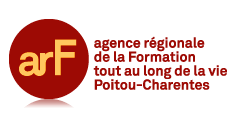 By Brendan O’Malley – Managing Editor.
By Brendan O’Malley – Managing Editor. In Commentary,
Amber Wigmore Álvarez says gamification is revolutionising the way candidates are recruited for jobs and universities need to equip their students accordingly in order to achieve good future employment outcomes.
John A Akec examines the bleak outlook for higher education in South Sudan, where persistent underfunding and soaring inflation could force many universities to close down, impacting heavily on the country’s future.
Chau-Duong Quang discusses some of the factors that have hampered the growth of private higher education in Vietnam, including political sensitivities due to the country’s communist background. And
Sonal Minocha and Dean Hristov suggest that universities – as the drivers of world-leading research – adopt a more outward-oriented and visual digital leadership to increase their impact globally.
In our World Blog this week,
Nita Temmerman warns against over-reliance on the textbook by university teachers, who should use a broad source of contemporary learning materials in delivery of their subject.
In Features,
Tunde Fatunde reports on the Anglophone crisis in Cameroon, where protest action in the Anglophone provinces by students, academics, teachers and lawyers, who are objecting to being marginalised by the Francophone-dominated government, is taking its toll. And
Stephen Coan reports on the threat to academic credibility posed by predatory journals, emphasising research on the extent of the problem in South Africa and possible solutions.
In a Special Report covering an international conference held in South Africa on higher education and inclusive development,
Munyaradzi Makoni reports on a speaker’s call for the link globally between higher education access and social advantage to be broken by developing admissions criteria that identify potential.
Makoni also focuses on a presentation by students from the School of Oriental and African Studies, UK, which outlines their stance on decolonisation, while
Makoni and Sharon Dell report on a South African vice-chancellor’s call for the need to address the “massive socio-cultural, inter-generational chasm” which exists between students and university administrators.
More... Submitted by Stefanie Botelho. Hours before Germany formally declared war on France in WWI, Marcel Proust penned a letter to his financial advisor that anticipated the horrors to come. More...
Submitted by Stefanie Botelho. Hours before Germany formally declared war on France in WWI, Marcel Proust penned a letter to his financial advisor that anticipated the horrors to come. More... By Ivo Pascucci. The proliferation of connected devices (Gartner predicts that 20 billion devices will be connected to the internet by 2020) is coming with a generation of people who will leverage the internet in novel ways. More...
By Ivo Pascucci. The proliferation of connected devices (Gartner predicts that 20 billion devices will be connected to the internet by 2020) is coming with a generation of people who will leverage the internet in novel ways. More...






/https%3A%2F%2Fprofilepics.canalblog.com%2Fprofilepics%2F1%2F0%2F1076071.jpg)